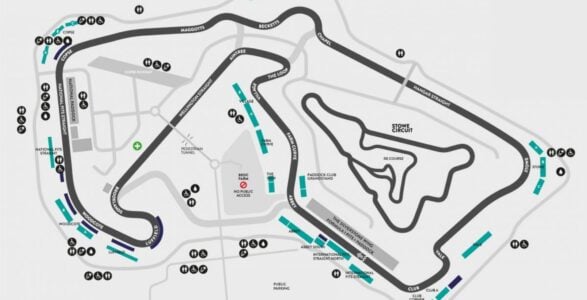Japan Mobility Show 2023: A glimpse into the future of mobility

Published 12 October 2023
The Japan Mobility Show 2023, formerly known as the Tokyo Motor Show, is one of the world’s largest and most prestigious car shows. It is held every two years in Tokyo, Japan, and showcases the latest innovations in passenger and commercial vehicles, motorcycles, and mobility technology.
The 2023 show will be held from October 26 to November 5 at the Tokyo Big Sight exhibition centre. It is expected to feature over 100 exhibitors from around the world, including major automakers, technology companies, and start-ups.
One of the main themes of the 2023 show will be the future of mobility. This includes the development of electric vehicles, autonomous driving technology, and new mobility services.
Electric vehicles
Electric vehicles are one of the most important trends in the automotive industry. They are more efficient and environmentally friendly than gasoline-powered cars. At the 2023 show, visitors can expect to see a wide range of electric vehicles from different manufacturers, including concept cars and production models.
Some of the notable electric vehicles that will be on display at the show include:
- The Honda NSX Type E concept car: This is the all-electric version of the Honda NSX sports car. It is expected to have a range of over 500 miles and a 0-60 mph time of under 3 seconds.
- The Nissan Ariya: This is Nissan’s all-electric crossover SUV. It is expected to have a range of over 300 miles.
- The Toyota BZ4x: This is Toyota’s all-electric SUV. It is expected to have a range of over 250 miles.
Autonomous driving
The Tokyo Motor Show also features a robust presence of autonomous driving technology. This technology is still in its early stages of development, but it has the potential to revolutionise transportation. At the 2023 show, visitors can expect to see a number of vehicles equipped with autonomous driving technology.
Some of the notable vehicles with autonomous driving technology that will be on display at the show include:
- The Honda Sensing 360 system: This is Honda’s suite of autonomous driving features, which includes adaptive cruise control, lane keeping assist, and automatic emergency braking.
- The Nissan ProPILOT 2.0 system: This is Nissan’s suite of autonomous driving features, which includes hands-free highway driving and automatic parking.
- The Toyota Safety Sense 2.5+ system: This is Toyota’s suite of autonomous driving features, which includes adaptive cruise control, lane keeping assist, and automatic emergency braking.
New mobility services
One of the most prominent themes of the Tokyo Motor Show 2023 is the continued shift toward sustainable mobility. With climate change concerns and an ever-growing awareness of the environmental impact of transportation, automakers are focusing on creating cleaner, more sustainable vehicles.
New mobility services are emerging to meet the changing needs of consumers. These services include car sharing, ride sharing, and micro-mobility. At the 2023 show, visitors can expect to learn about a variety of new mobility services from different companies.
Some of the notable new mobility services that will be on display at the show include:
- Honda’s Mobility as a Service (MaaS) platform: This platform allows users to book and pay for a variety of transportation services, including car sharing, ride sharing, and public transportation.
- Nissan’s Easy Ride service: This service allows users to book and pay for rides in self-driving cars.
- Toyota’s Woven City project: This is a smart city project that Toyota is developing in partnership with other companies. The city will be used to test new mobility services and technologies.
Concept Cars: The Future of Design
Concept cars are a staple of any major auto show. They give automakers a chance to showcase their latest design ideas and technological innovations. The 2023 Japan Mobility Show will be no exception.
Some of the notable concept cars that will be on display at the show include:
- Daihatsu me:MO: This is a small electric vehicle that is designed to be adaptable to different lifestyles. It has a modular design that allows owners to easily swap out different body panels and interior components.
- Honda NSX Type E: This is the all-electric version of the Honda NSX sports car. It is expected to have a range of over 500 miles and a 0-60 mph time of under 3 seconds.
- Mazda RX-Vision GT3 Concept: This is a racing car that is powered by a rotary engine. It is designed to showcase Mazda’s latest technologies and design language.
- Nissan Ariya: This is Nissan’s all-electric crossover SUV. It is expected to have a range of over 300 miles.
- Toyota BZ4x: This is Toyota’s all-electric SUV. It is expected to have a range of over 250 miles.
These concept cars represent the future of transportation. They are more efficient, environmentally friendly, and technologically advanced than today’s vehicles.
It is important to note that concept cars are not always indicative of future production models. Automakers often use concept cars to test new design ideas and technologies. However, concept cars can give us a glimpse into what the future of transportation might hold.


